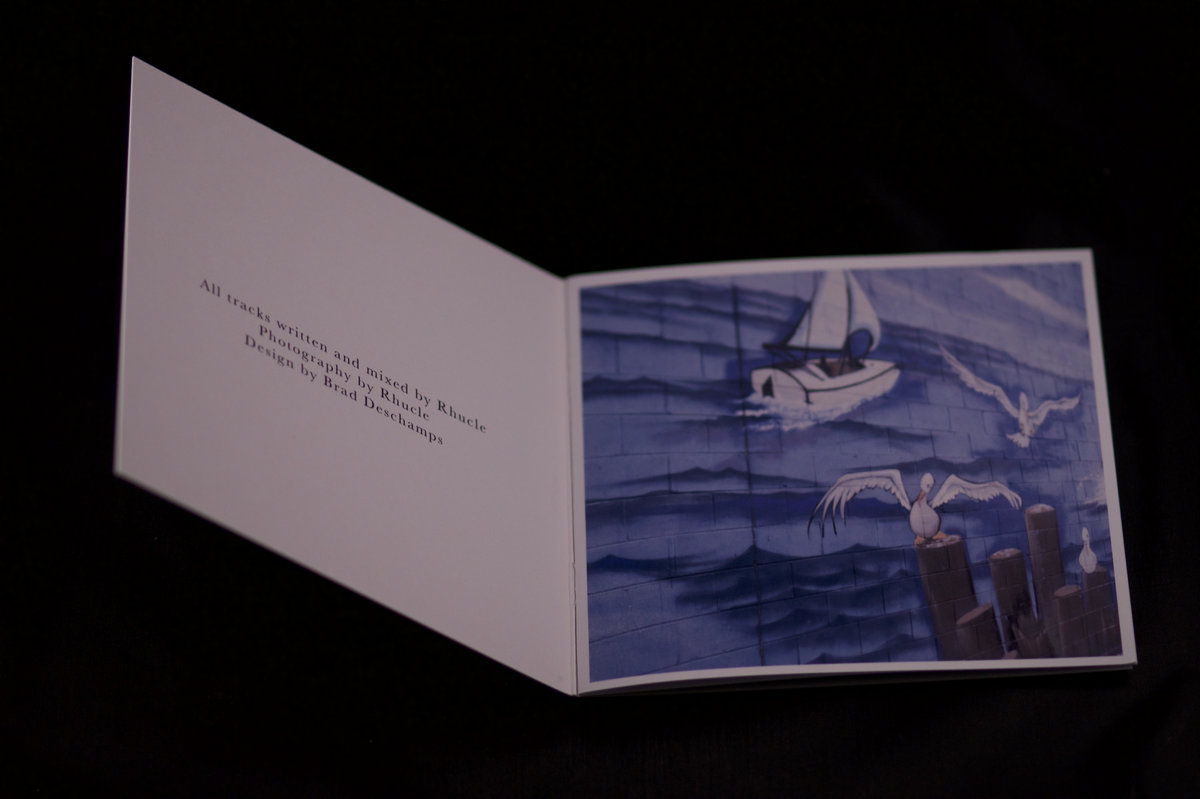
Since 2014, young ambient producer Yuta Kudo aka Rhucle managed to publish more than fifty albums full of calmest ambience. You can safely trust this music to lull your children, use it as a growth stimulant for domestic plants or simply put it on 24-hour repeat without fear that something suddenly will change dramatically there.
Rhucle albums sound absolutely same! It took me two years to start to distinguish them from each other (and I even published one), but even now I will not agree for a blind test. We all know Celer, Hakobune and Hatakeyama-san, and Yuta clearly studied with the best, but, in fact, what he does with his music is even more diverse in a sense. Yes, in every Rhucle album you'll hear sea waves, whispering springs, brooks and all other kind of water element. And his ambient sounds behave in similar fashion - instead of a static drone, Rhucle threads simple tones into undulating patterns causing the resonant frequencies to tremble - just like ripples on the water surface or streams inside a river body. But where Will Long ascribes another beautiful concept or situation, in order to justify another portion of the humming sounds with some reason (doing that, apparently, for himself - for me it's absolutely fine when music even doesn't have a title), Yuta won't do anything - same simple titles like Quiet Moments or Someday in the Rain, same sounds and the same murmuring water - absolutely pastoral, truly Japanese impressionism.
And this is his strength and his courage - not to try to surprise anyone with something, not to compete whose drone is more fat or deep... Just doing what he likes most. And repeating it again and again to the perfection. It's absolutely natural. The river flows every day just as it did yesterday. And maybe, at first glance, nothing changes in it. But you should slow down, calm down and just start looking - and you start to notice how thousands of tiny grains of sand change patterns every minute. As the reflection of the clouds trembles on the surface of the water. How infinite variability is combined with the disarming saturation of statics... This definitely has something Japanese and generally eastern in it - where we see simple, everyday things, Japanese find an infinite number of shades, nuances, meanings. And makes art of this. Maybe I'm just being stereotypical, but It seems to me that Rhucle mastered zen of ambient music - maybe just for himself, not necessarily for everyone... But that's how it usually happens, isn't it?


No comments:
Post a Comment